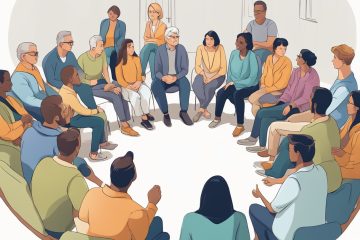Rideshare Accident Investigations: Legal Procedures and Best Practices
Rideshare platforms have revolutionized urban transportation, offering cost-effective and convenient options for commuters. However, the rapidly expanding market and increased usage also increase the likelihood of rideshare-related accidents. Such incidents in Dallas, Texas, bring forth complex legal questions concerning liability, insurance coverage, and passenger rights.
This article will examine various aspects of rideshare accidents from a legal standpoint. Highlighting experts in the field can be crucial in addressing the multifaceted implications of such accidents. You can find out who caused the collision, get compensation for your injuries, and navigate the claims process with the assistance of a Dallas Uber accident attorney.
Key Takeaways
- Insight into the types and challenges of rideshare accidents
- Clarification of the legalities surrounding liability and insurance
- Comprehension of the rights of those affected by rideshare accidents
- Guidance on steps to be taken post-accident, including legal assistance
Waht Are Rideshare Accidents?
In today’s context, where apps can instantly call a car to your location, the dynamics of personal transportation have shifted. Though statistically safe, rideshare vehicles are not exempt from road incidents. Accidents involving these services open a Pandora’s box of legal questions centering on who is responsible—the driver, the rideshare company, or a third party.
Factors such as the driver’s status as an independent contractor versus an employee, the insurance arrangements between the driver and the rideshare company, and the presence of passengers or third parties can complicate the situation further.
Types of Rideshare Accidents
When considering the spectrum of rideshare accidents, we can categorize them into multiple scenarios. Head-on collisions, side impacts, and rear endings can result from the negligent driving of the rideshare operator or another driver on the road. Passengers are often the first victims in these cases.
Still, pedestrians and cyclists may also be entwined in these unfortunate situations if they happen to be at the wrong place at the wrong time. Lastly, single-vehicle accidents involving only the rideshare car can further obscure the liability landscape—raising questions about driver fatigue, vehicle maintenance, or even road conditions.
Determining Liability in Rideshare Crashes
The ascertainment of faults in rideshare accidents is pivotal. The central question often lies in the driver’s role and relationship with the rideshare company. Are they acting independently, or is their service inherently tied to the company’s operations? This distinction affects how insurance claims are filed and the strategies for legal action.
For instance, rideshare companies typically carry third-party liability coverage to protect riders. Still, the compensation can differ based on whether the rideshare app was active or the driver was waiting for a ride request.
Insurance Policies and Rideshare Accidents
Insurance policies in the context of rideshare services are multifaceted. Drivers are usually required to have insurance, which covers them when they aren’t logged into the app. But once they are, additional coverage provided by the rideshare company kicks in. These policies can have substantial differences in coverage limits and conditions.
Legal Rights of Passengers and Third Parties
Individuals involved in a rideshare accident — whether a passenger in the vehicle or a third party — have certain inalienable rights. A passenger’s right to safety is paramount and could lead to pursuing a claim against the driver, the rideshare company, or another motorist, depending on who was at fault.
Third parties injured by a rideshare vehicle can seek claims for medical bills, lost wages, or pain and suffering. However, navigating through the complexities of such proceedings often requires specialized legal counsel.
Steps to Take Following a Rideshare Accident
The moments following a rideshare accident are critical. Safety is the priority; once assured, contacting legal authorities and accumulating evidence becomes essential. Photos of the accident scene, details of the driver and the vehicle, and witness accounts together form a robust foundation for any insurance claim or legal case that may follow.
Moreover, medical documentation of injuries sustained is crucial for personal well-being and irrefutable proof of the accident’s impact.
The Impact of Local Laws on Rideshare Accidents
Local and state legislation can significantly influence the handling of rideshare accidents. Legal precedents, regulatory statutes, and applicable laws differ widely, and keeping abreast of these variations is fundamental for an appropriate response following an accident.
The local legal framework often determines the possible compensatory routes, the extent of claims, and the potential liabilities for the rideshare companies. Novices to this jurisprudence might only work with professional guidance, making the role of attorney even more significant.
Compensation and Settlements in Rideshare Accidents
Courting compensation in the aftermath of a rideshare accident is often daunting for victims and their families. Settlements can bring about resolution without the protracted process of court trials.
Typically, compensation covers the expenses related to medical care, loss of income, and emotional or psychological trauma. However, the payout can vary greatly depending on the circumstances of the accident, the insurance policy details, and the legal strategies employed by the parties involved.
How to Find the Right Legal Assistance
Seeking the expertise of a seasoned legal professional specializing in rideshare accidents can be the lynchpin to a favorable resolution. The selection process should involve carefully considering the attorney’s experience, past case outcomes, and understanding of the intricacies of rideshare law. Ensuring a competent advocate can markedly influence the journey through the complex legal pathways post-accident.
Preparing Your Case: Tips and Best Practices
Preparation is vital to any legal dispute, especially for rideshare accidents fraught with nuances. Working closely with an experienced attorney, keeping an extensive narrative of the incident and its aftermath, and meticulously documenting all pertinent facts can strengthen a victim’s case. Additionally, staying informed on safety and procedural updates can be beneficial in bolstering one’s case with current, relevant data and best safety practices.




